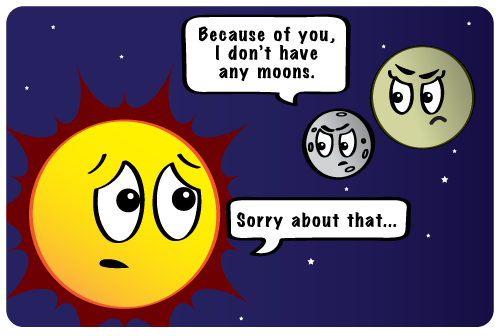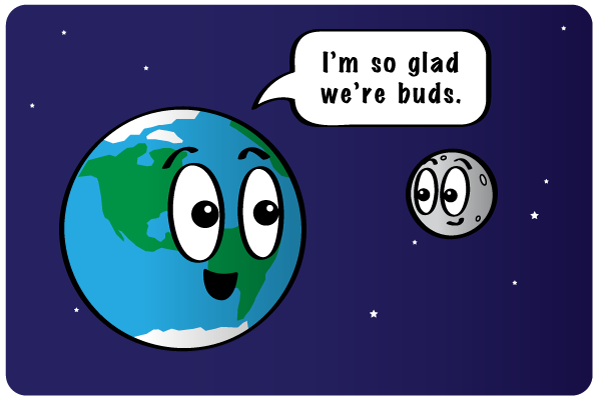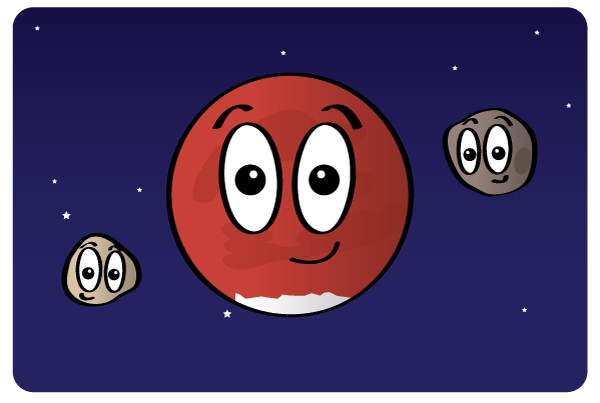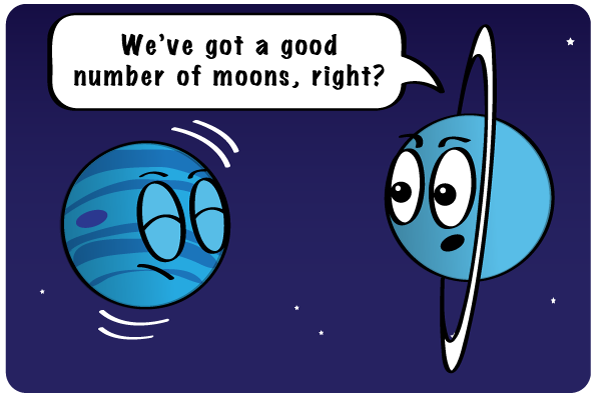MOONS!
A lot of moons or no moons at all?
We on Earth have just one moon, but some planets have dozens of them. Others don’t have any. Which planets have moons, and which don’t?
Let’s go in order from the sun.
Mercury and Venus
Up first are Mercury and Venus. Neither of them has a moon.
Because Mercury is so close to the sun and its gravity, it wouldn’t be able to hold on to its own moon. Any moon would most likely crash into Mercury or maybe go into orbit around the sun and eventually get pulled into it.
Why Venus doesn’t have a moon is a mystery for scientists to solve.
Because Mercury is so close to the sun and its gravity, it wouldn’t be able to hold on to its own moon. Any moon would most likely crash into Mercury or maybe go into orbit around the sun and eventually get pulled into it.
Why Venus doesn’t have a moon is a mystery for scientists to solve.
Earth (That's us!)
Up next is Earth, and of course we have one moon.
Mars
Mars has two moons. Their names are Phobos and Deimos. Don’t you wish our moon had a cool name like that?
Jupiter
Next are the giant outer planets. They have lots of moons. Jupiter, for instance, has 53 moons! The most well-known are Io (pronounced eye-oh), Europa, and Callisto. Jupiter also has the biggest moon in our solar system, Ganymede.
These moons are so big you can see them with just a pair of binoculars.
These moons are so big you can see them with just a pair of binoculars.
Saturn
Saturn has 53 moons, and that’s not counting Saturn’s beautiful rings. Saturn’s moons have great names like Mimas, Enceladus, and Tethys. One of these moons, named Titan, even has its own atmosphere, which is very unusual for a moon.
Uranus and Neptune
Uranus has 27 moons that we know of. Some of them are half made of ice.
Lastly, Neptune has 13 moons. One of them, Triton, is as big as dwarf planet Pluto.
More Moons?
There are also 25 “unconfirmed” moons. Jupiter has 16 awaiting confirmation, Saturn has eight, and Neptune has one. They’re unconfirmed because we’re waiting to get more information about them.
If all these moons do get confirmed, Jupiter will have 69 moons! Can you imagine being on a planet with so many moons in the sky?






Comments
Post a Comment